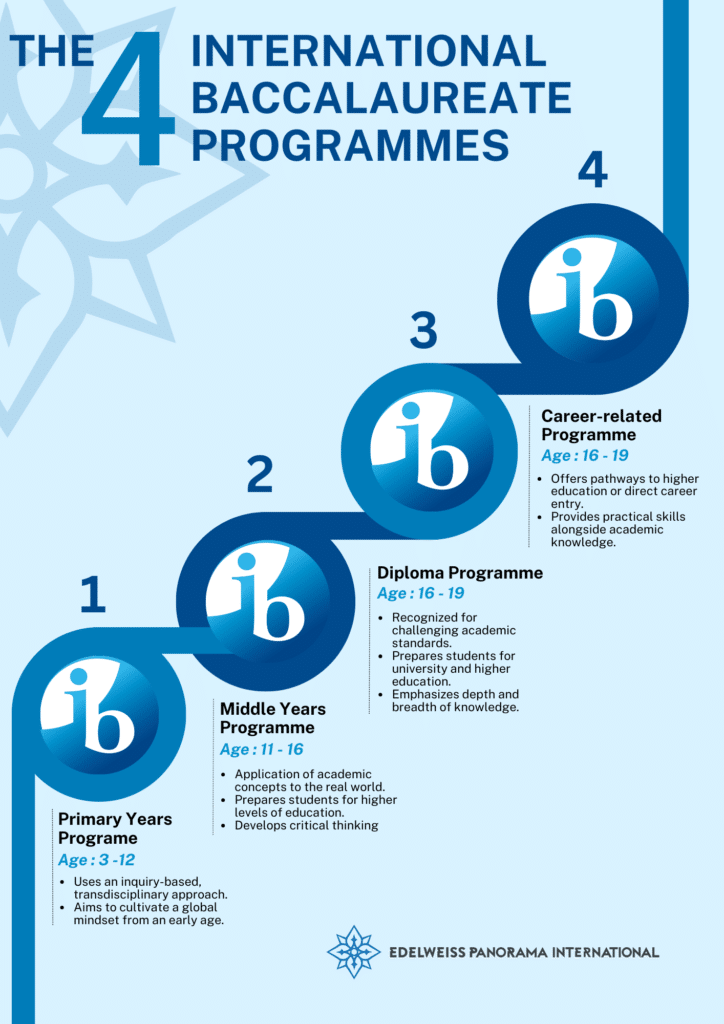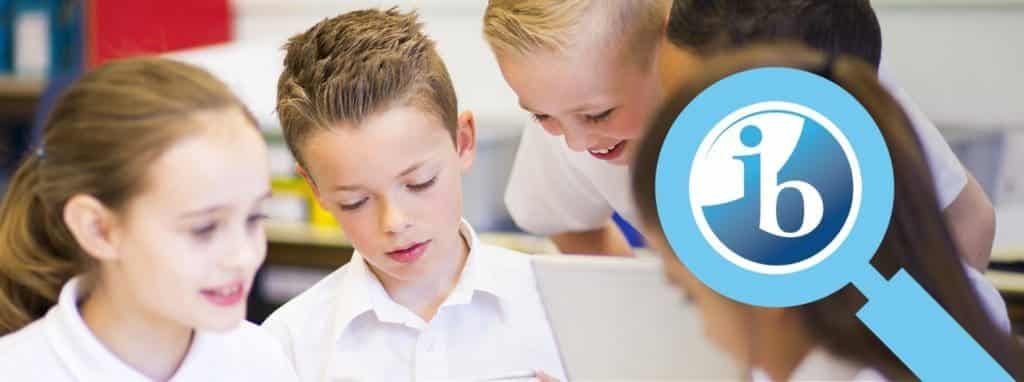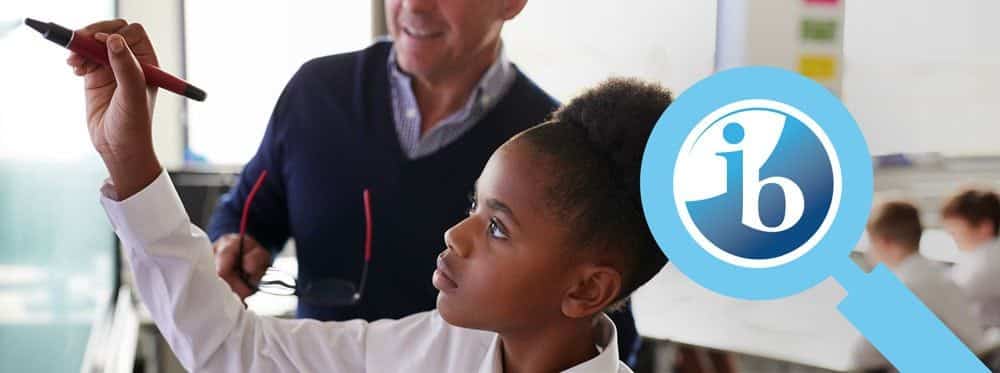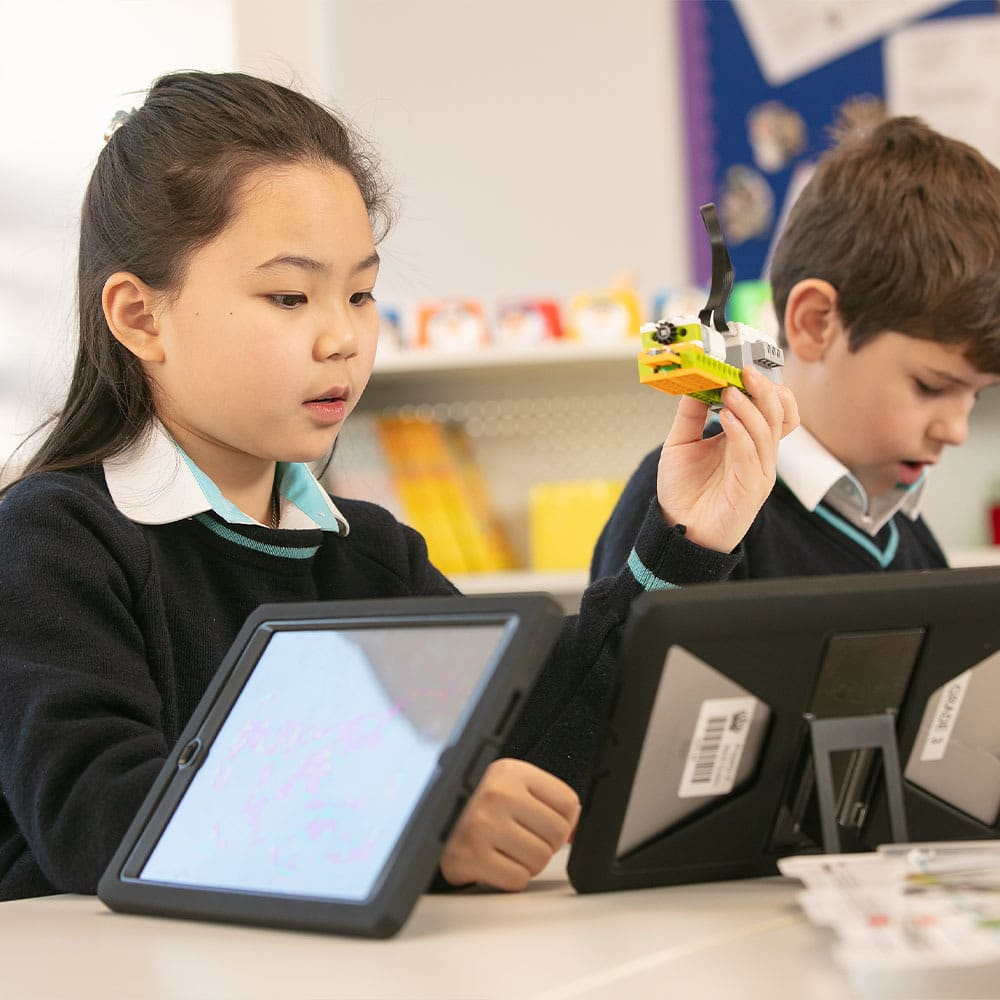The International Baccalaureate was established in 1968 in Geneva as a non-profit educational foundation with the aim of providing students with a flexible, yet challenging education program that prepares them for a globalizing world.
This program is a globally recognized educational framework that offers four distinct educational programs to students from age 3 to 19. Each of these programs is designed to foster rigorous academic inquiry and develop high-caliber students who can thrive in a globalized world.

The International Baccalaureate (IB) Primary Years Programme (PYP), introduced in 1997, is designed for children aged 3 to 12. It represents a pivotal first step in a lifelong educational journey, predicated on an inquiry-based, transdisciplinary framework that challenges students to think for themselves and take responsibility for their learning as they explore the world around them.
Foundational Principles of the PYP
The PYP is fundamentally designed around the concept of agency and developing students as lifelong learners who are curious and capable of leading their own learning journey. The program is built on a bedrock of essential elements that define its unique approach:
Curriculum Structure
The PYP curriculum is organized around three key pillars that support a comprehensive educational framework, ensuring a balanced approach to nurturing young minds:
The Role of Agency, Self-Efficacy and Action
One of the distinguishing features of the PYP is its focus on developing a sense of agency and self-efficacy among its students:

Curriculum Framework and Inquiry Cycles
The PYP’s curriculum framework is an evolving entity that reflects the dynamic nature of the educational needs it aims to meet. It begins with the premise that students are active collaborators in the learning process. The framework uses global contexts and guiding questions to provoke and support inquiry as follows:
The International Baccalaureate (IB) Middle Years Programme (MYP) is specifically designed for students aged 11-16. This program aims to bridge the educational gap between the Primary Years Programme (PYP) and the Diploma Programme (DP), providing a robust framework that encourages students to make practical connections between their studies and the real world.
Overview of the MYP Curriculum
The MYP is structured around eight core subject groups, enhancing the educational experience by offering a broad and balanced curriculum for early adolescents:
These subjects are taught with a minimum of 50 hours of instruction per subject group each year, ensuring comprehensive coverage and mastery of the content.
Flexible Subject Choices
In the final two years of the programme (years 4 and 5), students are given the flexibility to focus on six of the eight subject groups. This adaptability allows the programme to meet local educational requirements and to cater to individual student learning preferences, making the MYP both globally standardized and locally adaptable.
Interdisciplinary Learning
A key feature of the MYP is its focus on interdisciplinary learning. Each year, students participate in at least one collaboratively planned interdisciplinary unit that involves at least two subject groups. This approach encourages students to think across boundaries and to integrate their learning in various subjects to solve complex problems.
The Personal Project
The MYP also includes a unique long-term project known as the ‘Personal Project’ in the final year (Year 5). This project allows students to showcase their learning and skills development throughout the programme by choosing a topic of personal interest and taking responsibility for their inquiry into the subject.

Teaching and Learning Approaches in the MYP
Contextual Learning: The MYP emphasizes teaching and learning through real-world contexts. Students explore key concepts through globally significant issues, helping them understand the relevance of their learning to the world around them.
Conceptual Understanding: The programme promotes learning through key interdisciplinary concepts, fostering an environment where students can connect learning across subject areas, enhancing their ability to apply their knowledge in unfamiliar situations.
Approaches to Learning (ATL): ATL skills are integral to the MYP and include social, thinking, research, communication, and self-management skills. These skills encourage students to become independent learners and prepare them for higher education and life beyond school.
Service as Action: Reflecting the IB’s ethos of education for a better world, the MYP incorporates community service through the ‘Service as Action’ model. Students are encouraged to apply classroom learning to real-world issues, contributing to their communities in meaningful ways.
STEM Education: Recognizing the importance of Science, Technology, Engineering, and Mathematics (STEM) education, the MYP integrates these subjects into its curriculum. This focus ensures that students are well-prepared to tackle the challenges of a technology-driven world.

The International Baccalaureate (IB) Diploma Programme (DP) is a comprehensive and challenging pre-university course that is designed for students aged 16 to 19. It aims to prepare students for success at university and life beyond through rigorous academic study and the development of critical thinking and independent research skills.
Structure of the DP Curriculum
The DP curriculum is divided into six subject groups and the DP core, consisting of three essential components. This structure is designed to encourage breadth and depth in students’ learning experiences.
Six Subject Groups:
DP Core:

Educational Approach and Learning Model
The DP promotes comprehensive education through:

Course Selection and Requirements
The CP curriculum is uniquely structured to integrate the academic rigor of the IB with career-related studies that prepare students for higher education, apprenticeships, or direct entry into employment. Here’s a closer look at the three key components of the CP framework:

Teaching and Learning in the CP
The CP’s educational philosophy is grounded in the IB’s commitment to high-quality, challenging, international education. Here’s how the CP delivers this philosophy:
The International Baccalaureate (IB) provides a comprehensive educational framework through its four distinct programs, each designed to cater to different age groups, ensuring a seamless continuum of learning from early childhood to pre-university levels.
Starting with the Primary Years Programme (PYP) for children aged 3 to 12, the IB focuses on developing inquisitive, informed, and caring young people who learn to think and act globally using an inquiry-based, transdisciplinary approach.
As students grow, they transition into the Middle Years Programme (MYP), which serves those aged 11 to 16. This program encourages practical connections between their studies and the real world, preparing them for the two final programs.
The Diploma Programme (DP) is designed for students aged 16 to 19 and is renowned for its rigorous assessment standards that prepare learners for higher education and beyond.
Simultaneously, the Career-related Programme (CP) integrates rigorous academic study with practical, career-oriented training, offering a path to higher education or direct entry into professional careers.
Together, these programs aim to mold students into well-rounded, ethical, and globally-minded individuals ready to tackle the challenges of an evolving world.
